The Fellowship is so much more than just a job. It’s an ongoing series of projects which are loosely connected by the theme of English Language and Cultural Exchange. The project for the weekend of December 10 was the 25th annual conference of the Association of Teachers of English in Senegal (ATES). Like everything else I’ve experienced here, it happened on a timeline all it’s own.
T-minus 1 Month: November 8th-28th
I received the call for submissions in my inbox. If you recall, my arrival in Senegal was marred by a minor crisis of housing, and at that time I was in my 4th temporary housing situation, living with the Fulbright English Teaching Assistants. That was also the week I got my first real details about what I would be doing at the Veterinary School, and it was at the same time I was given a Zoom meeting project to organize and direct. When it happened, I didn’t fully appreciate what I was getting myself into, but since the submission was a 100 word abstract due by November 20th, I decided in the end to go with a variation on the workshop I’d designed for my most recent professional development course, “Training of Trainers”: how to use TikTok to motivate ESL learners. Decision made, I moved on with the very grinding work of designing the materials for the school (needed by Dec 5) and the Zoom debrief (Dec 3).
It may be relevant to note that my brainstorm for this TikTok workshop was at that time entirely theoretical, since I had only encountered TikTok videos when they were occasionally ported over to my Facebook feed. I didn’t actually install TikTok until I was preparing for this conference. I could have done something for both the class and the conference that I was more familiar or experienced with, but I wanted to use this Fellowship to really push my boundaries and try new things. Mission accomplished.
I had a fair amount of emotional rollercoaster over this process as well. Despite how long I’ve been teaching abroad, I haven’t actually given very many presentations to peers in my career. Teaching is a daily presentation, but professional opportunities like this are just not things that have come along often. I worried that my topic would be too different, but then I also worried that it wouldn’t matter what I proposed because I’d seen as the “foreign expert”. Then the RELO made it seem like the submissions process was more exclusive because they were limiting the number of foreigners to make space for local presenters (which would have honestly been great because I don’t want to be chosen just for being American, and I really don’t want to take a platform away from a Senegalese teacher), and then it turned out there were not actually that many submissions anyway, so probably didn’t matter.
I turned in my material on time (November 20) and was expecting to hear back by the 25th (their own deadline for announcements). In the mean time, I moved into my new apartment, kept working on my materials for the school and Zoom debrief, and put the conference on the back burner, unwilling to prioritize mental and temporal resources to it until I knew whether I would actually be presenting or not. Friday the 25th came and went with no news, and I waited patiently until the following Monday to write and ask. With less than 2 weeks left, I was told everyone who submitted was accepted. Way to make a girl feel special.
T-Minus 10 Days: November 28-December 8
I finally knew that I would be presenting and started on the process of travel plans. Particularly since the RELO from the Embassy and other ATES teachers from Dakar would all be going, I thought that there might be some kind of assistance or direction in how I would get to this conference. I was so very wrong. I have made my own travel arrangements in many countries, often “off the the beaten track”. This isn’t usually something I balk at, but I had come to appreciate the deep difficulties involved in transit here in Senegal which are like nothing else I’ve ever experienced.
I tried to get more information from the conference organizers about the location of the conference within the town of Kaffrine, or any advice on hotels or transportation options, but they simply referred me back to the Embassy staff who had no answers either since they were provided a US Govt issue driver. To make matters more fun, although Google Maps showed several hotels in Kaffrine, only one even had a website and that website was a photo and phone number. Booking and Airbnb had no listings for the town at all. Booking a hotel online would not be possible, and yet I didn’t feel comfortable going without a reservation since this was “the largest” conference for English teachers of the year, and we thought the nearby hotels might all be booked up. Silly me. (also that railway station marked so optimistically on the map is a shut down relic of the colonial past. no trains)
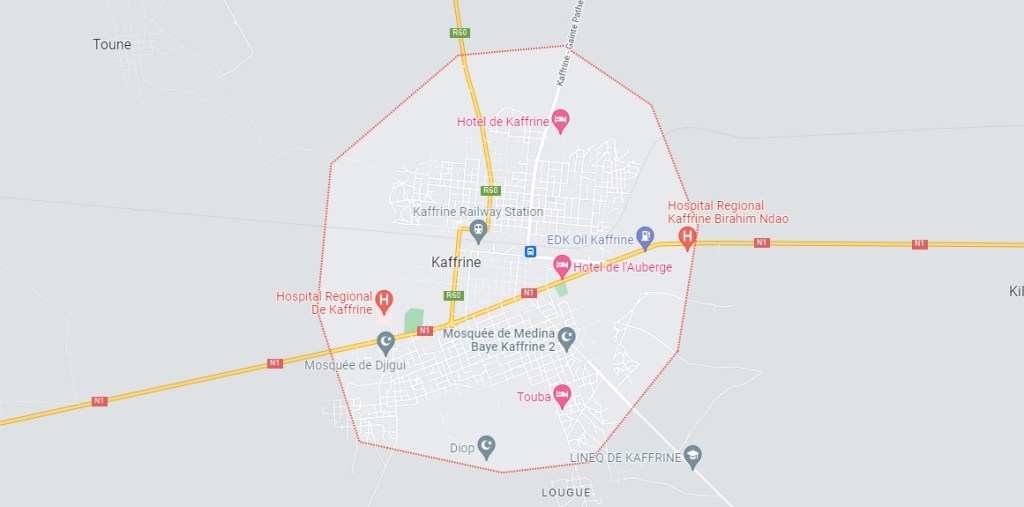
That Wednesday, November 30, I met up with the Fulbrighters to hammer out the reservations. I don’t know if I would have been able to do any of this without them. They are both much more fluent in French than me, plus one of them speaks passable Wolof and has a local boyfriend. This turned out to be a big advantage in the “getting shit done” arena. She called the main car service in Dakar and they were willing to drive us to Kaffrine on Friday (Dec 9) for 85,000CFA (140$USD) but they refused to send someone to Kaffrine to pick us up the following Sunday.
I considered the possibility of renting a car and driving it myself. I got my international driver’s license before leaving the states and verified it’s valid here. I wouldn’t want to drive in the city, but the countryside seemed ok, and for 140$ I felt like we could rent a car for 3 days and then we wouldn’t have to worry about getting back and forth between the hotel and conference either. However, I didn’t know if there was any reason that the Embassy might disallow it, so I called the RELO to ask. I left the conversation with the impression that it was technically allowable for me to rent a car, but by then the Fulbrighters had turned up more information on the rental situation, and the availability of automatic transmissions here is even less than in Europe. I really need to learn to drive stick. We put car rental on the back burner as an option of last resort and got back to searching.
Talking to the other Fellow in St. Louis (also about 5 hours away from Dakar) I learned that the ATES teachers there were planning to rent a bus as a group to drive down on Friday, and I tried to reach out to the ATES leader in Dakar to see if they were doing the same. When we finally did get an answer back (several days later), we found they planned to leave Dakar in the wee hours of Saturday morning rather than spend Friday night at a hotel. The conference was set to start at 9am, and presentations at 11am. I couldn’t imagine leaving Dakar at 4am Saturday to just barely get there in time. Additionally, the Embassy has strong feelings about us not being on the road after dark.

We checked on the Dakar/Kaffrine bus route via an app called Yobuma; however, the daily bus going from Dakar to Kaffrine was not matched by a daily return, and we would not be able to get a return bus until the following TUESDAY. We looked also at Kaolac which had a better bus schedule, but then realized we still didn’t know how to get between Kaolack and Kaffrine. Finally, we gave up and called the Senegalese boyfriend for help. He got in touch with a driver he knows and we finally got a quote, 120,000CFA for the round trip with A/C. That’s 195$ for those playing the US currency game.
Africa is surprisingly expensive: I can’t really wrap my head around this. I have taken buses, trains, and rideshare cars all over the world, and that’s just an insane amount of money to get to a city 5 hours away and back. The previous week I’d done some internet research about tour groups to various sights around Senegal and was shocked by the high prices, but it seems like that’s just what drivers cost around here. Travel really is a luxury. Additionally, it blows my mind that the conference was set in an out of the way place. I understand the desire to move it around the country each year, but the neighboring town of Kaolack would have been far easier to arrange both transportation and lodging for.
Thankfully, the hotel was much easier. A simple phone call in French got us room rates and basic information about things like air conditioning and payment options. Single rooms were 30CFA (about 45USD) per night. We booked the rooms with relative ease, although, again, I’m sure if I had to do it on my own, with my terrible French, it would not have been so easy. I had hoped to use this trip as a way to learn more about how I might go sightseeing, but all I really learned was how expensive and difficult everything is when compared with nearly every place else I’ve been lucky enough to travel.
I spent the next week juggling plates as two of my three projects came home to roost, and I frantically tried to create the visual accompaniment to my presentation in between. It’s not enough to just say TikTok is useful for motivating students, I had to figure out a way to show a room full of older teachers who had also likely never used the platform themselves how to use it. I also had no idea if there would be internet at the conference, so I planned to download every example video and be able to make the presentation offline if needed. In addition to finding a wide cross section of TikTok videos to use as examples. Every waking hour that week from December 1-8 I was working, either with students, in a meeting, or on my laptop at home scouring the corners of the internet for data, commons license images, and TikTok videos, all while frantically trying to practice the speaking portion and timing over and over to be sure it made sense, flowed, and fit in the available time.
T-Minus 1 Day: December 9th
Friday the 9th finally arrived. We were expecting the driver around 11:30am. Sometime around 11:15 I got a message that he was running late because of traffic. The ongoing stream of messages for tardiness continued for the next 2.5 hours. The traffic in Dakar is truly awful, but it shouldn’t have taken more than an hour to get from one place to another, and any driver who’s worked here for more than a week should know to plan for the traffic. All things considered, I didn’t expect him to actually be on time, but I didn’t think it would be more than 30-45 minutes delay.
By the time we got on the road, all of us were very frustrated. Our goal of getting to Kaffrine before dark was entirely impossible now. The conference schedule (which I’d received only a day before) indicated a cultural event on Friday evening at 5pm that I was looking forward to attending, and felt disappointed that this delay by our irresponsible driver would make us miss that. In addition the traffic to get out of the city was truly insane. It took us over an hour to go the 15km to the highway, adding even more time to our estimate.
The ride itself was not unpleasant, especially once we got out of the city. The sun was glaring, but the driver had agreed to run the A/C for our quoted price and so we were fairly comfortable. We had some road snacks and enjoyed watching the baobab trees and cows throughout the countryside. I took some video of a small town we passed through which was fairly representative of the journey. In English, I’d use the colloquialism “one horse town” to refer to a place so small, but in reality they had quite a few horses around!
The very large highways are fairly well-kept and clear. The one connecting the airport to the city, for example, is impressive. However, once we got out past the airport, we were on roads that were full of potholes and speedbumps, and frequently stuck behind enormous trucks hauling goods around at very slow speeds. The process for passing was pretty much just peek around the truck to see if the oncoming lane was clear and going for it. There was definitely a type of headlight flashing communication between drivers, but it seemed to signal anything from “I’m here” to “you’re clear”. It wasn’t until the sun started setting that I realized the road dust and haze might make an oncoming car hard to see, and the flashing was a good way to stand out.
While on the road, I got word that the cultural event was being pushed back to “not earlier than 8pm” but more likely 9pm to midnight, and also that it was relocated from the conference venue to a nearby hotel.. I thought the delay was probably wise given how many of the attendees would be unlikely to arrive in Kaffrine before dark. The bus of teachers which had left from St. Louis hours before us was still hours behind us, even though the actual distance between St. Louis and Kaffrine was only slightly farther than that between Dakar and Kaffrine. I guess the bus was travelling much slower.
We arrived at the hotel around 9pm and were able to check in fairly easily. We had been told there would be food at the cultural event, so we decided to head over to that location and eat there while enjoying the event. One hitch, we hadn’t seen any taxis since arriving. We asked the front desk at the hotel to call a car for us since our driver was only contracted for the inter-city driving and had taken off as soon as we were at the hotel. The “taxi” was a plain car, and the driver was asking an entirely unreasonable fare. It’s hard to put in perspective, so don’t think of it in terms of USD, think of it in terms of Dakar taxi costs. Dakar is the big city, things are supposedly more expensive, and for me to take a 5km trip up to the pub costs between 1,500 and 2,000 CFA depending time of day. The trip to the cultural event was about 2km and if it hadn’t been dark (and also like 35C/95F) we could have walked it. He wanted 3,000CFA. I’ll admit, it’s not like we had a lot of options, but he also didn’t have a lot of customers. In the end, I think we got down to 2,000 and got his number for the return ride. (he ended up being our defacto Kaffrine driver and made close to 10,000 off our group that weekend for a few trips under 3km)
When we arrived at the location we were given for the cultural event, no-one seemed to know what we were talking about. It was after 9:30 and while we had been warned things would be late, I had expected the hotel staff to at least be aware of something happening. We were all road weary and hungry, and decided to go ahead and order food from the hotel restaurant since no event food was forthcoming. We sat down and got some beers, and a few of the local people came over to say hi: one a rather skeezy dude who kept insisting one of our party looked just like his ex-Scandinavian girlfriend, and the other a very sweet woman who was delighted that two of our party spoke some Wolof and wanted us to dance with her.
Like so many restaurants in Senegal our meal took a very long time to arrive. We joked that they had to catch the chicken after we placed our orders. We didn’t get our meals until around 10:30, and by then there was finally some sign of an event. Drummers and a stringed instrument player were joined by a couple of singers for a kind of African improv jam session called Ngoyane. More people arrived and the place started to fill up, but we were loosing stamina fast and were expected to be at the conference at 9am the next day.
By the time we finished eating, our cohorts from St. Louis had still not arrived and according to an ongoing WhatsApp chat were experiencing a comedy of errors that put our own to shame. At one point, they transferred from the bus to car, but then the car stopped in an empty parking lot and the driver got out to look around with a flashlight. No one seemed to know what they were looking for, only that it made no sense to look for a whole hotel with a flashlight. We decided to wait until 11:30 to see if they would make it before we had to turn into pumpkins and they did with minutes to spare. It gave us a good chance to say hi and exchange crazy travel stories, but none of us wanted to visit too long because the day had been exhausting for everyone. We got back to our hotel a bit after midnight and I was able to sleep fairly well if all too briefly.
The Conference
9AM – The morning of the conference, we called our local “taxi” and headed over, knowing we’d arrive after the scheduled start time but before anything actually started. Again our expectations of just how late “late” is here were wildly inaccurate. The 9am opening ceremonies finally started at 11am. Sometime around 10am, I and the other presenters were asked to sit up on the stage instead of in the audience. It was very uncomfortable, but at least I was in the second row, behind the real VIPs. I didn’t really enjoy being on display, but in the end it may have been a cooler place to sit due to airflow.
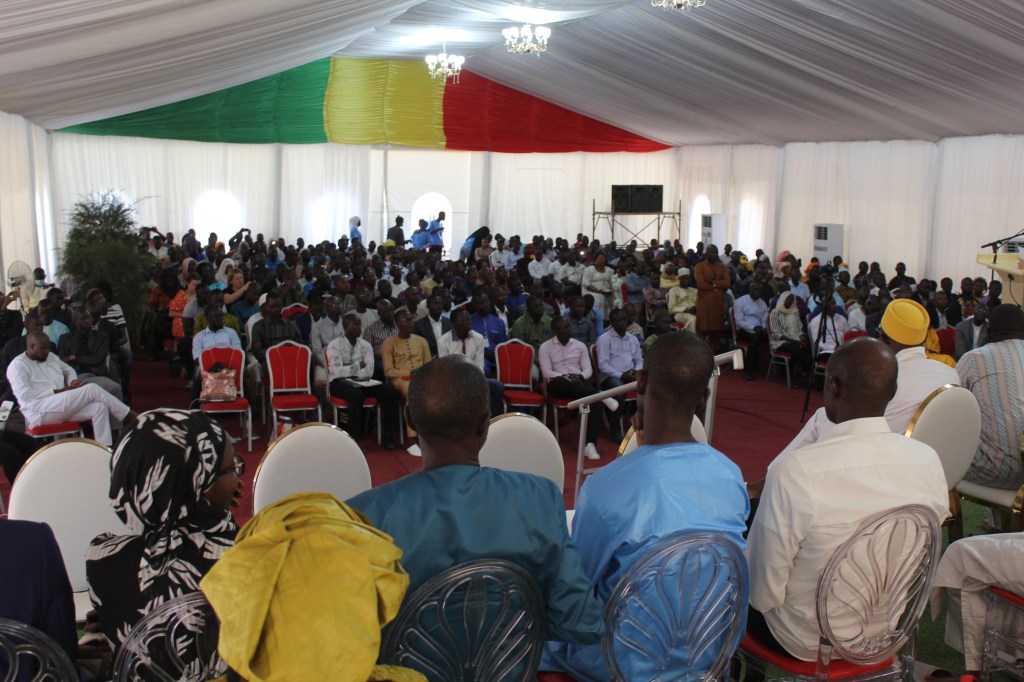
11AM– The vast majority of the speakers were addressing the conference in French, which is fine, because it’s the primary language here, though I had hoped at a conference of English teachers there might be more English. I can follow along ok with basic French, but the content of the speeches was not especially easy, interesting, or relevant to me, and it was very difficult to maintain focus. Finally, the opening ceremonies concluded and the keynote speaker was set to begin. He was given a long introduction… Senegalese people love to talk … and talk… and talk. His presentation was in English and he was an excellent speaker. I genuinely enjoyed listening and was appreciative of his attitude towards students and education. He started the presentation by reviewing the movie Akeelah and the Bee, which shows two very different approaches to mentoring students through a spelling bee competition, and shows in the end that love and encouragement work better than harsh discipline and criticism. He was very student centered, focused on student-led learning and the need for engaging and motivating activities, but above all, support and encouragement.

At the end, the moderator claimed she was going to limit questions to the first three people, but instead of questions, it was mostly stories and praise, and as much as I admire this cultural devotion to storytelling and mutual uplifting, it wasn’t only us Westerners getting impatient at this point in the proceedings. I overheard one of the local VIPs on stage with me say to his neighbor in a frustrated tone that the time for paying tribute was over and the people should just sit down. Even then, after the 3rd person to take the microphone finished, the moderator called a 4th to speak. I’m mildly surprised there wasn’t a riot. In the end, the tech in charge of the sound board simply cut her mic off, forcing her to abdicate the stage.
1PM– When we were finally allowed to get up, it was nearly 1pm. According to the schedule, we should have not only concluded the opening ceremony and keynote speech, but also a coffee break, and both presentation slots, and be on our way to lunch by 1pm. It’s no surprise that as soon as we were released everyone flooded to the snack tables outside.
I personally booked it for a restroom. The only ones we had found were co-ed and non-flushing. I don’t mind co-ed for single seaters, but it is a bit awkward when there are stalls. The lack of flushing is harder because with “seat” toilets it almost always means it’s not clean. I want to hope that maybe when classes are in session at the building the restrooms are cleaned more regularly, and maybe it was just dirty because of the overuse by conference attendees. I want to believe that no one has to use facilities like that on the regular. I’ve been in a lot of different styles of toilet over the years, and what I’ve come to find is that all of them are basically ok if they are clean, and all of them are truly miserable if they aren’t. Whether you are flushing, pouring water, or sprinkling ashes/sawdust doesn’t matter as much as the overall maintenance.
Next, I set off in search of coffee (it was a “coffee break” after all) and found some Nescafe packets and hot water. Once I was reasonably refreshed, I began to look for my presentation room. It was obvious the written schedule that had been handed out was meaningless for times, but I had been assigned room 1 for the first set of presentations. There were 5 of us presenting simultaneously, which I found odd when I first received the schedule: two rounds of presentations before lunch and then it’s over? Wouldn’t it make more sense to have a round of presentations after lunch to let people attend more talks? Of 10 presentations, each person could only see 2, and presenters could only see one. I wouldn’t be able to watch any of my colleagues who were all scheduled to speak at the same time as me. Yet, as it was approaching 2pm before the first presentations even started, the plan made more sense to me. Somehow, even though they felt obligated to schedule the event for an early start, the planners knew in their hearts that things would end up like this.
2PM- It took a while to find my room. No one from the conference staff made any attempt to help me find it or help me get set up and organized. The “moderator” for my slot turned up in the room as I was setting up my laptop, and in the process of discovering that there was no audio available in the room. The thing about TikTok is that its an AUDIO visual medium, and for my purposes it’s about speaking practice more than anything. Without audio, my presentation would be confusing and pointless. We started the search for audio equipment, delaying the start of my presentation even further.
When a speaker was finally brought in, the person trying to hook it up had two power plugs and no audio cables. I couldn’t seem to get them to understand that the second power cable would NOT actually connect the computer and the speaker. Thankfully, one of the Fulbrighters had offered to take photos for me that day and was playing assistant. She figured out the speaker had a Bluetooth option and after no small amount of fiddling with the settings, we got the computer and speaker paired and I was able to proceed – with sound – more than 3 hours after my talk was originally set to begin.

Perhaps because of everything that had already gone wrong, I felt my anxiety drop away as I started to speak. I got through the whole thing and I really enjoyed watching the audience of teachers slowly change their minds about this crazy young-person fad. I had a fruitful Q&A session afterwards which gave me some quality insight into how I can improve the presentation before the next conference, and then it was done. I wandered back outside and rode a little wave of serotonin for having made it through what had come to feel like a Herculean task. We sang songs with a group of high school English club students and I did a short video interview for a teacher from the Casamance region. By the time I came down enough to question what was happening with the second round of talks, they were already underway and so I just stayed in the shade sipping water and chatting to the other attendees who had also opted to sit out the second round of talks.
4PM- When the last presentations were over, we tried to file over for the lunch on offer, but the rooms which had been set up were not large enough to accommodate the number of attendees. I don’t think it was more than 200 people, but it looked like the long tables would seat 100-150 depending on how cozy they wanted to be. Additionally, it was hot AF and the meal was Thieboudienne served in the traditional huge communal dishes and eaten with hands. I think I could have done 2 out of 3 of those variables (hot, crowded, messy eating) and I was not alone in that feeling. All the Americans collectively decided that rather than trying shove in, we would call it a day and go back to eat at our hotel. The remainder of the conference was internal business to the organization of which we are not members, so we didn’t feel obligated to stick around.
The hotel restaurant was, of course, out of most of the food on their menu, but grilled chicken and pizza were good enough. We even managed to get ice cream for desert. I collapsed under the air-conditioning in my room before 8:30 and watched old cartoon network videos on YouTube via the sketchy Wi-Fi until I fell asleep.
The Aftermath
The next day, our inter-city driver was actually early to take us back to Dakar (no traffic in Kaffrine). We had our hotel included breakfast of baguette, butter, eggs and cheese-product with a side of Nescafe. The drive back to Dakar was just as long and full of cows, but we all made it home before dark this time, at least.

I don’t know what to say about this trip other than it was a wild cultural experience. It was so much harder and more stressful than anything that small and close to “home” has a right to be, and yet I’m also very grateful that I was able to participate in it, not only for the professional opportunity to present at the conference, but also for the cultural experience in all its gritty glory. This will help me know how to approach future travels in Senegal and Africa. Whether it’s tourism or my next scheduled event in Zanzibar, it will give me a metric by which I can set appropriate expectations and experience fewer frustrations as a result. Every experience helps me not only to understand this place and it’s people, but to reflect on myself and my place in the world, and what that means for my obligations to myself and my fellow humans. So yes, it was hard, and hot, and frustrating, and dirty, but it was also an entirely unique and worthwhile experience in which I got to come face to face with the teachers and students who are shaping Senegal and ultimately West Africa into strong and independent culture of the future.





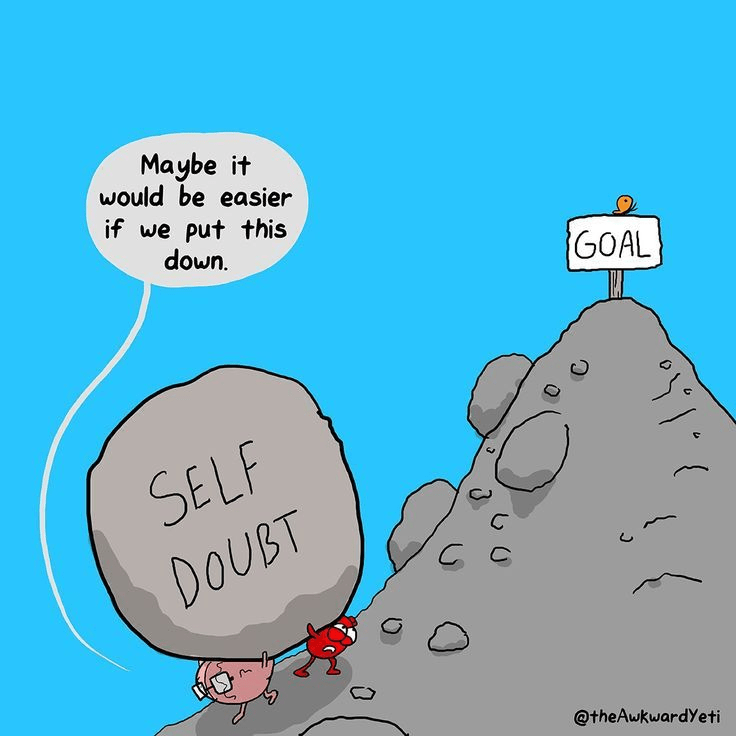









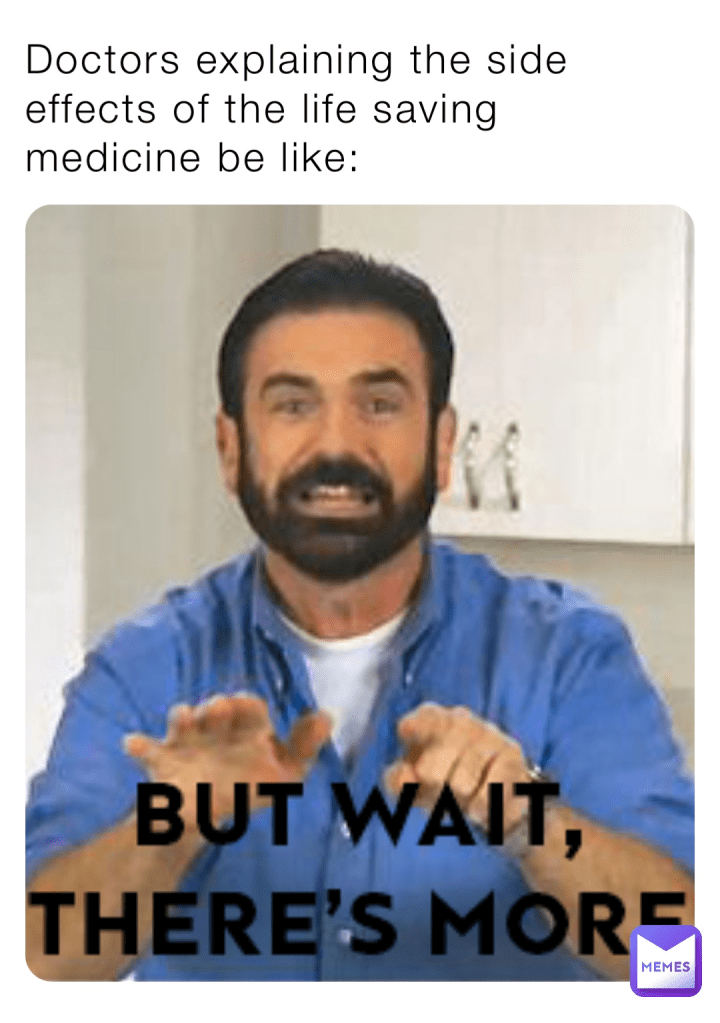



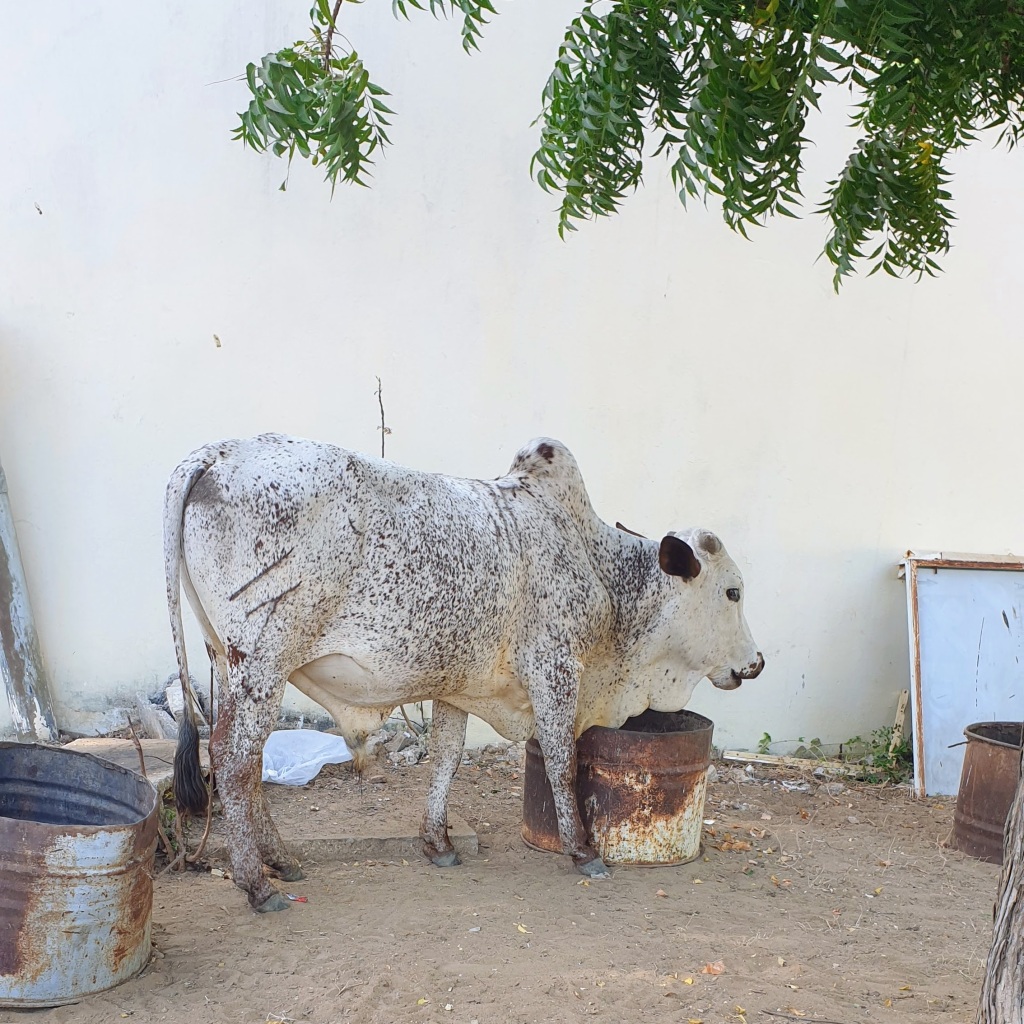






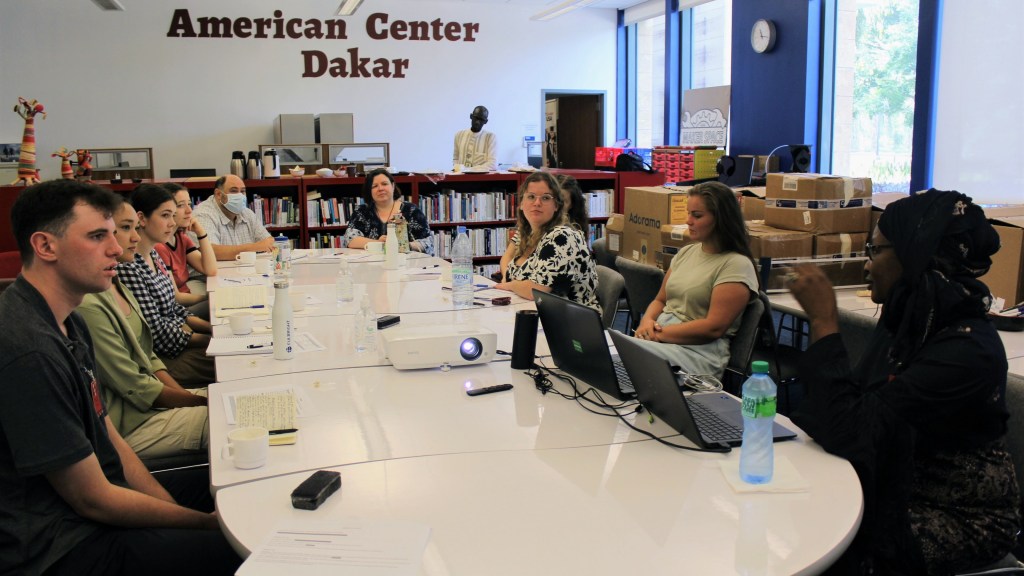

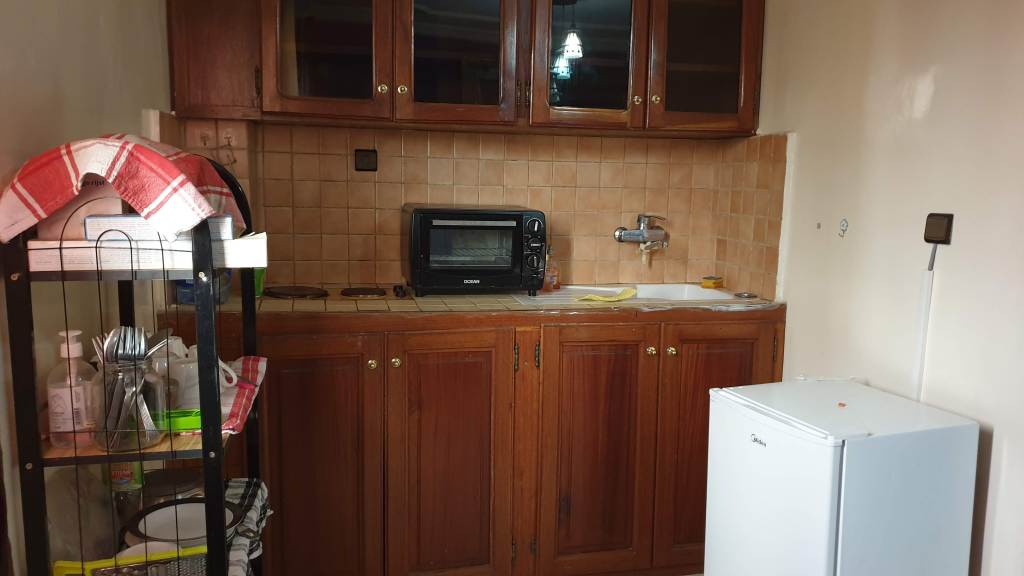

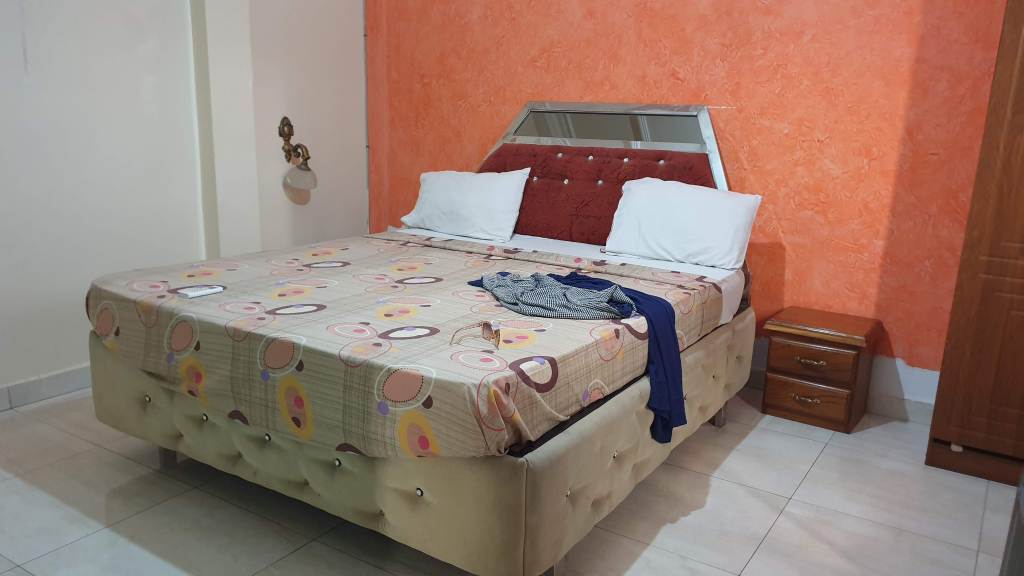

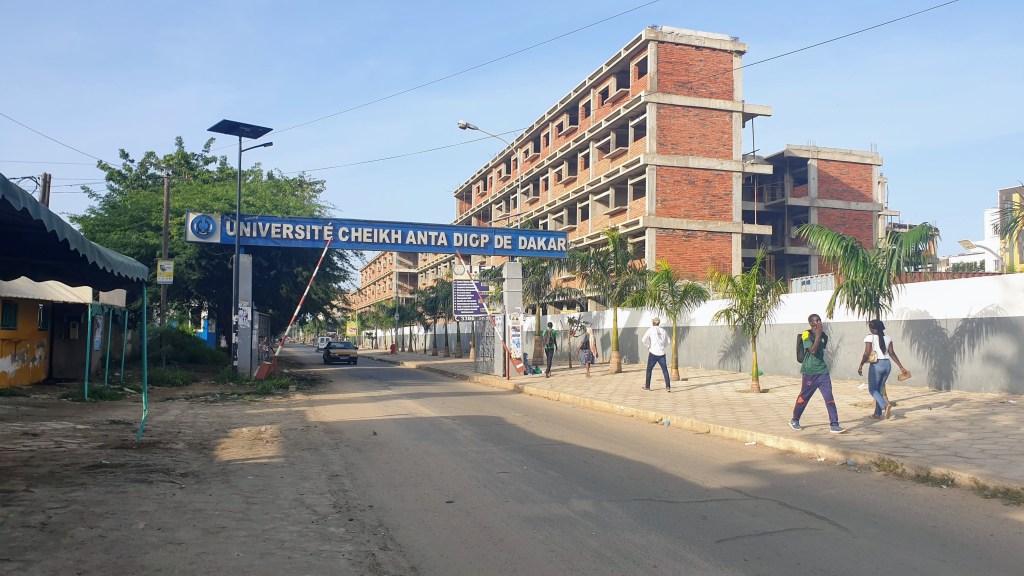


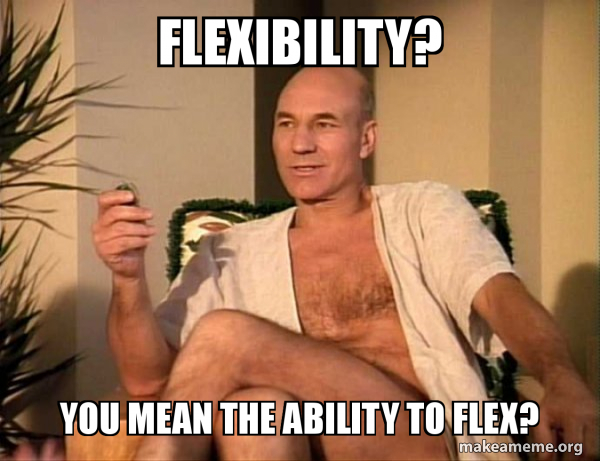

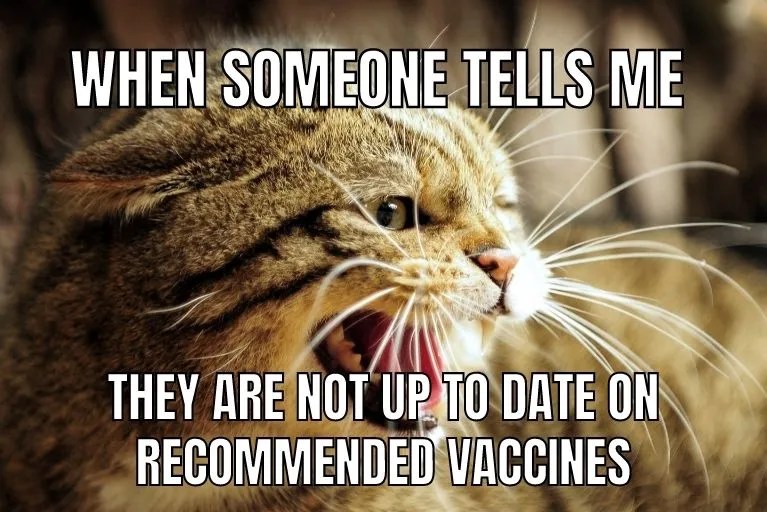
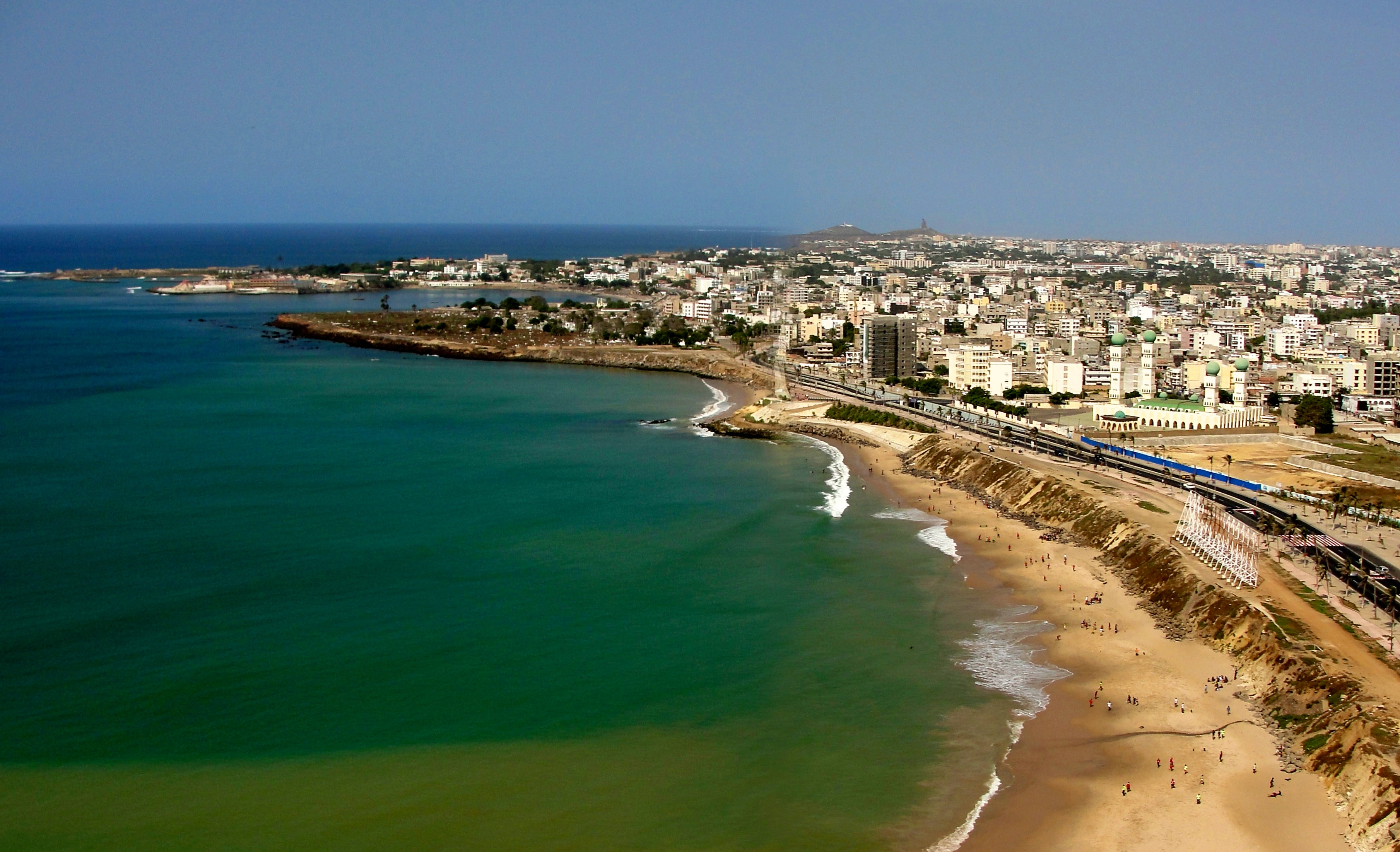


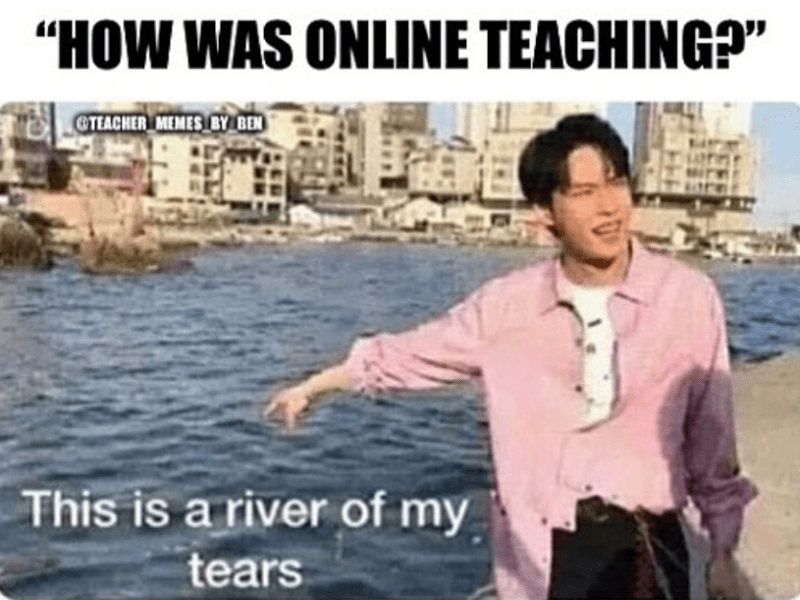
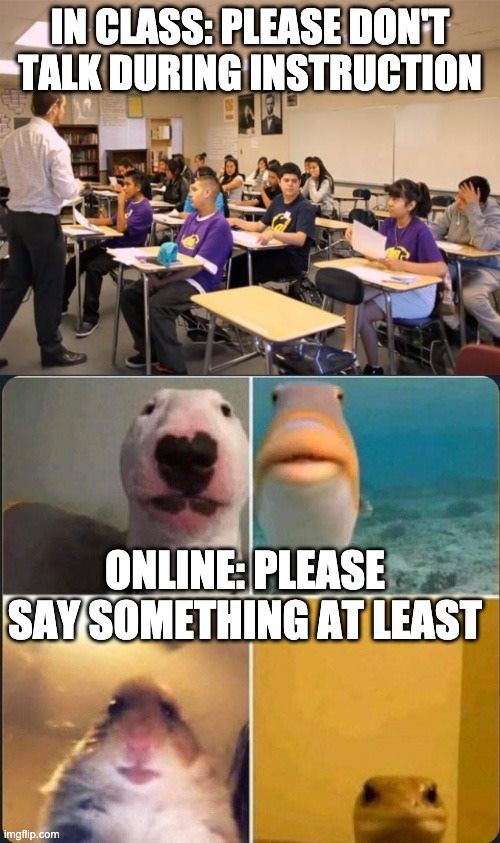



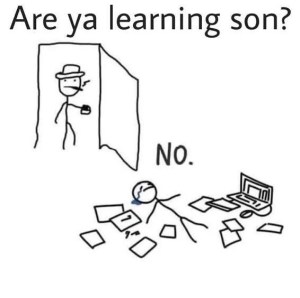














 Interviews
Interviews
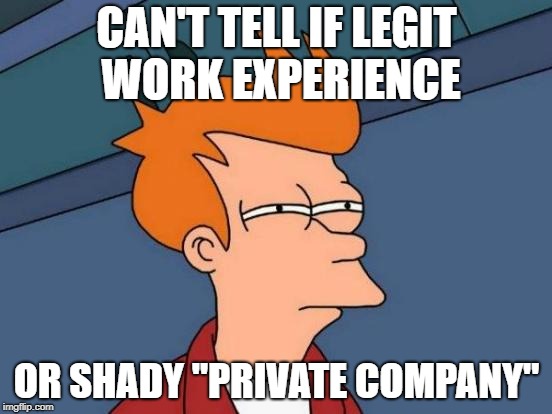
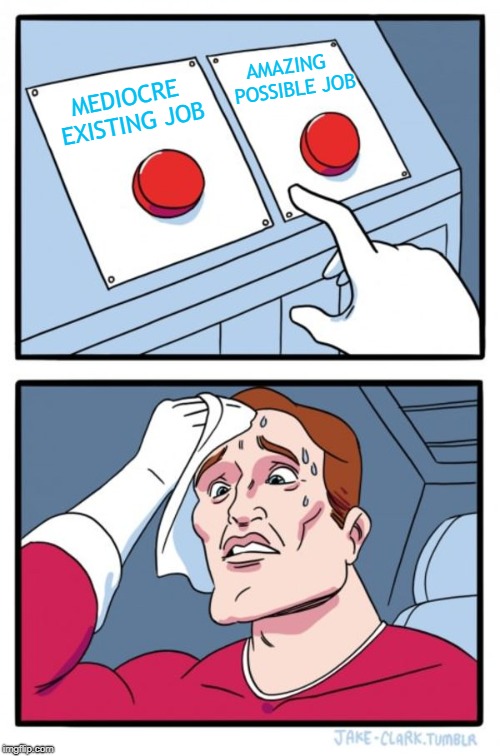



 Apply like mad, but weigh your investment. There is something to the idea of applying for jobs even if you don’t meet all the requirements, but in the case of jobs abroad make sure you do meet the visa requirements (set by the government) and there can be some flexibility of the school’s requirements (set by the Dean). However, when employing the scattershot application tactic, be sure to draw the line at applying for jobs that will waste time and energy for too little potential return.
Apply like mad, but weigh your investment. There is something to the idea of applying for jobs even if you don’t meet all the requirements, but in the case of jobs abroad make sure you do meet the visa requirements (set by the government) and there can be some flexibility of the school’s requirements (set by the Dean). However, when employing the scattershot application tactic, be sure to draw the line at applying for jobs that will waste time and energy for too little potential return.
 Don’t give up. Cry, eat too much chocolate, put that
Don’t give up. Cry, eat too much chocolate, put that 
